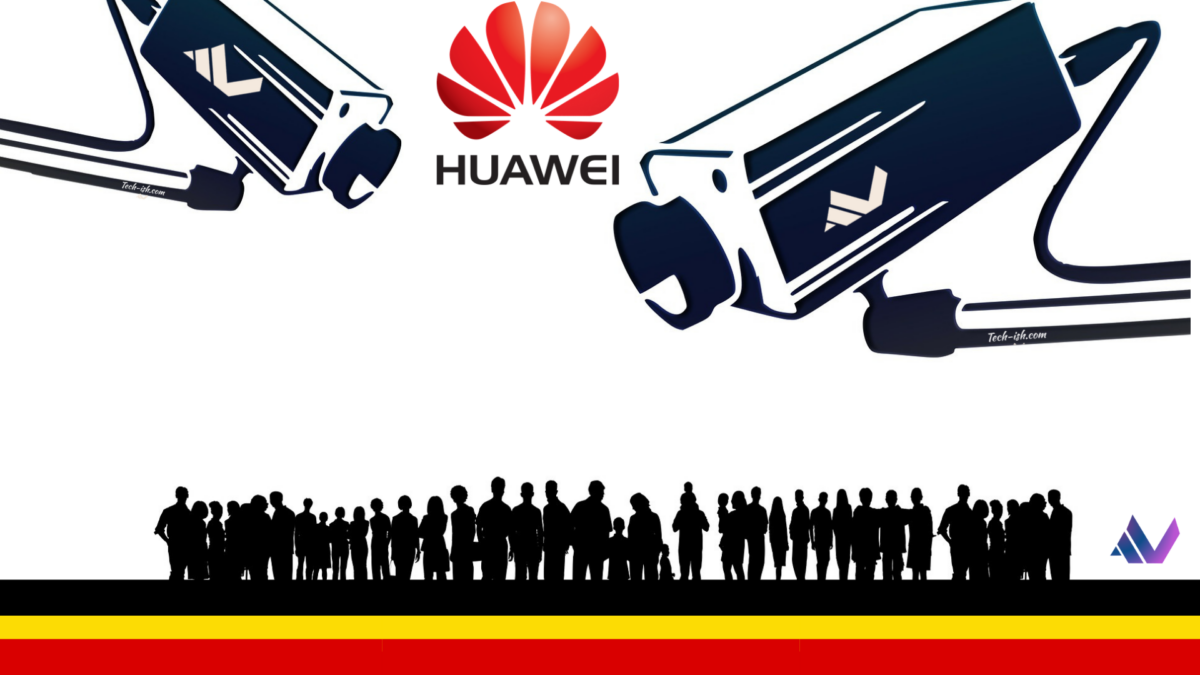
The Ugandan Police is partnering with Chinese Tech Giant Huawei to install a series of Closed-Circuit Television (CCTV) cameras across some of the country’s cities. These cameras pack facial recognition AI that the police claim will go a long way into helping them fight crime. The cameras are being installed across urban centres, borders, and highways.
The project is expected to be completed in two years with over 5500 cameras being installed. According to an article on AllAfrica.com, installation started back on July 15th in Kampala City where there will be 3,233 cameras.
The Ugandan Police Spokesman is quoted in the article as saying, “We have already started in Kampala Metropolitan Police Area. We are laying fibre and installing CCTV cameras. After Kampala Metropolitan Police Area, we shall move to other major towns, highways and important installations across the country.“
Last year, after the killing of the Assistant Inspector General of Police, Uganda’s President ordered the Ministry of Finance to provide funds for CCTV cameras. This was however only implemented after the death of another prominent government official.
With the Face Recognition tech, Ugandan Opposition, and critics have argued that the government is installing these cameras to spy on its citizens; more-so protesters who take to the streets to demonstrate against the authoritarian government.
Uganda’s Forum for Democratic Change leader says, “The CCTV project is just a tool to track us, hunt us and persecute us.”
Recently, an investigative piece from the Wall Street Journal published on August 15th has revealed that Huawei Technicians helped governments in Uganda and Zambia spy on political opponents. The piece alleges that Huawei technical staff helped intelligence officers in Uganda crack the encrypted communications of popular leader, Bobi Wine.
Both Huawei and Ugandan Police have denied the allegations.
The Ugandan Police Spokesman said, “We strongly believe the article by the WSJ […] is being used to sabotage and smear the UPF [Uganda Police Force] and give political mileage to a particular member of the opposition and other interests.”
Huawei on the other hand have said, “[our] code of business conduct prohibits any employees from undertaking any activities that would compromise the data or privacy of our customers or end users, or that would breach any laws.”
The thing is it’s a complex situation:
- On one hand you have a country with a Dictator President who has been in power for over 30 years and is seeking re-election come next year amid growing opposition from more determined Ugandans.
- On the other hand you have Huawei who have faced backlash from America, and continuously face growing concerns of them using their tech to spy on people.
- On one side, you have the Human fundamental right to privacy.
- And on the other side you have crime which really needs to be addressed.
Neither Huawei nor the Ugandan government have explained how the data collected from these cameras is being stored, and used. Who has access to all these data? Is it Huawei? Is it the government? How does the face recognition work? How far back in time is data saved? What about possible manipulation (as has been pointed out by The Verge)? Who checks on all that?
Where should the line be drawn at when it comes to surveillance versus privacy? Are CCTV cameras bad? Or is it the facial recognition that’s bad? And what happens in a country like Uganda where the Police are corrupt, underpaid, and under-resourced? Will the Face Recognition aided cameras really help fight crime?
Herbert Karugaba, a Ugandan police investigator for 17 years before he joined the U.N., in an article on Reuters says, “It’s money down the drain. It is the quality of the man and woman in uniform… that matters.”
In Africa, Huawei has sold CCTV cameras to many governments including Kenya and Egypt.
In Kenya back in 2015, Safaricom handed over the National Surveillance System (built using Huawei Infrastructure) to the government. President Kenyatta, in his State of the Nation address in April 2019 said, “Almost 2000 CCTV cameras are working in Nairobi and Mombasa, offering real time 24-hour security monitoring. This has greatly assisted our police in solving complicated crimes.”
In 2012, as part of the integrated urban surveillance system for Nairobi metropolitan area, up to 42 cameras were placed in strategic places across Nairobi. This was done by M/s Nanjing LES Information Technology Ltd, a Chinese Firm. Reports have however claimed these cameras aren’t working despite costing over KES. 400 Million.
Update: Re-edited info on Kenya in last paragraphs.






